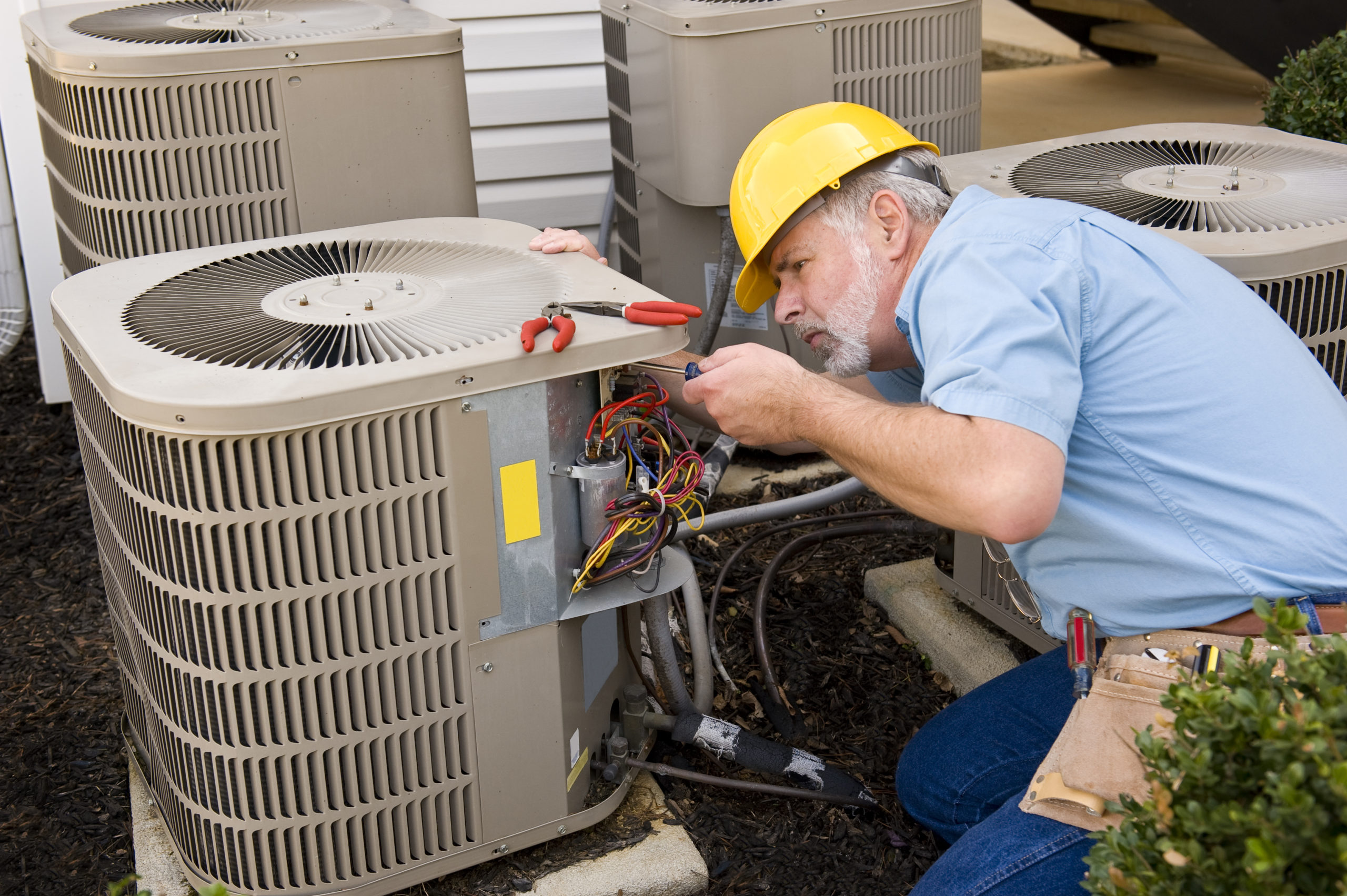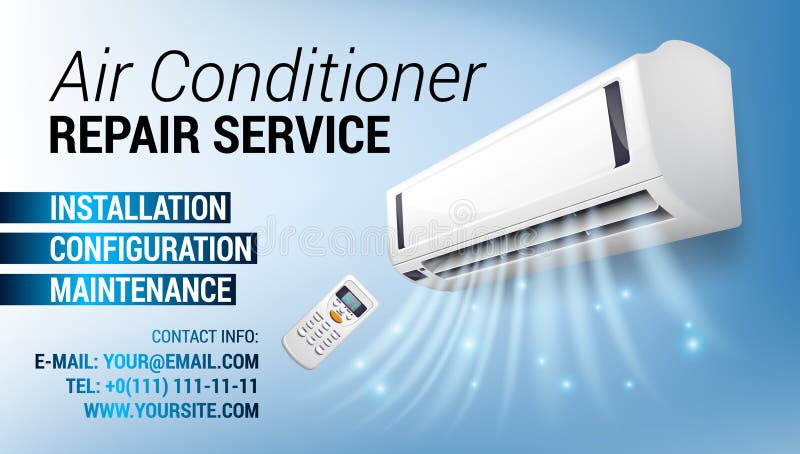Imagine your air conditioning unit as a master artist, skillfully sculpting away at the oppressive heat in your house, leaving behind a trendy, comfy sanctuary. Have you ever wondered just how this modern wonder accomplishes such an accomplishment?
The intricate dancing of cooling agents, coils, compressors, and air ducts all work in consistency to create that stimulating blast of cold air. Yet how precisely do these elements integrated to produce that much-needed respite from the sweltering heat?
Allow's reveal the internal functions of ac unit and demystify the science behind remaining cool.
Trick Takeaways
- Effective Air conditionings use cooling agents to take in and launch heat, improving air conditioning and power efficiency.
- Normal upkeep guarantees ideal performance, durability, and power financial savings.
- Correct sizing and style protect against power waste and make sure even cooling circulation.
- Understanding air flow dynamics and optimization enhances cooling down effectiveness and comfort degrees.
The Basics of A/c
Understanding the basics of a/c can considerably boost your knowledge of how these systems operate successfully. Power performance is a critical facet of cooling, as it not just affects your electrical power bill however also the atmosphere. Efficient air conditioning unit use much less energy to cool an area, making them economical and green. By investing in an energy-efficient unit, you can enjoy a comfy interior environment while reducing your carbon footprint.
Moisture control is an additional essential feature of air conditioning. Ac system aid manage the dampness levels in your home, producing an extra comfy environment. Excess moisture can lead to mold development and discomfort, while reduced humidity levels can trigger completely dry skin and respiratory problems. A well-kept a/c unit can efficiently manage humidity, making certain a healthy and enjoyable living setting for you and your family.
Understanding just how cooling systems take care of power effectiveness and humidity control can help you make notified choices when selecting and using these systems in your home.
Recognizing Refrigerants and Their Role
When it pertains to air conditioning unit, recognizing cooling agents and their function is very important. You'll find out about the significance of cooling agents in cooling systems and just how they assist in the warmth transfer process.
Furthermore, considering the environmental influence of refrigerants is vital for sustainable cooling remedies.
Role of Refrigerants
Refrigerants play an important role in the procedure of ac system by facilitating the transfer of heat. The effectiveness of a cooling agent directly influences the cooling procedure and energy usage of the system.
When considering refrigerants, it's important to evaluate their effectiveness against their ecological ramifications. Some cooling agents add to ozone depletion and worldwide warming, motivating the search for greener alternatives. Sustainable actions concentrate on searching for refrigerant choices that are energy-efficient and have marginal environmental impact.
Makers are progressively investing in creating new cooling agents that straighten with sustainability goals. By focusing on refrigerant effectiveness and exploring sustainable options, the air conditioning market intends to reduce its carbon impact and reduce environmental damage.
Environmental Impact Factors To Consider
Taking into consideration the environmental effect of refrigerants is crucial in evaluating the sustainability of air conditioning systems. When reviewing the ecological implications of a/c, two crucial factors to think about are power effectiveness standards and carbon footprint evaluation.
- Power Efficiency Specifications:
- Energy-efficient ac system take in much less electrical power, lowering overall energy consumption and environmental impact.
- Carbon Footprint Evaluation:
- Carrying out a carbon impact evaluation assists in comprehending the amount of greenhouse gas discharges related to air conditioning procedures.
- Cooling agent Choice:
- Going with refrigerants with lower Global Warming Prospective (GWP) can especially minimize the ecological effect.
- Appropriate Disposal:
- Making certain appropriate disposal of old refrigerants prevents them from damaging the atmosphere.
- Regular Maintenance:
- Normal maintenance of cooling systems can enhance effectiveness, lowering power consumption and environmental impact.
The Process of Warm Transfer
When your ac unit operates, it depends on a procedure of warmth transfer to cool your room efficiently. https://brockleyacinstallation.co.uk This mechanism entails the absorption of warmth from the indoor air and the exchange of thermal power to maintain a comfy temperature.
Understanding this essential element assists you grasp exactly how air conditioning system efficiently regulate the climate in your house.
Warmth Absorption System
To successfully cool down the air in your room, ac unit use a heat absorption system that effectively moves warmth. This system plays a critical function in keeping temperature level guideline and making use of innovative cooling innovation.
Here's just how the warm absorption process works:
- Cooling agent Circulation: The refrigerant takes in heat from the indoor air.
- Compression: The compressor increases the pressure of the refrigerant, creating its temperature to climb.
- Condensation: The warm, pressurized refrigerant launches heat outside as it condenses right into a fluid.
- Expansion Valve: This part reduces the cooling agent stress, causing it to cool and vaporize.
- Evaporation: As the refrigerant evaporates, it soaks up warmth from the indoor air, beginning the cycle over again.

Thermal Energy Exchange
In the process of thermal energy exchange, warm transfer plays an important role in how air conditioning unit work to cool down indoor areas properly. Thermal characteristics dictate that warmth always moves from a warmer area to a cooler one. Ac unit take advantage of this concept by drawing out warm from interior air and releasing it outside, making use of cooling agents to facilitate the transfer.
Reliable thermal energy exchange is vital for the energy effectiveness of an air conditioning system. By optimizing warmth transfer processes, ac unit can cool down areas successfully while minimizing energy usage. Comprehending the dynamics of warmth transfer is important for designing and running air conditioners that supply the desired degree of comfort without unneeded energy wastage.
Evaporator Coils and Their Function
Comprehending the function of evaporator coils is vital to grasping exactly how air conditioners efficiently cool down interior rooms. These coils play a vital duty in the cooling process by soaking up heat from the indoor air, which is after that distributed back as cool air.
Below are some bottom lines concerning evaporator coils:
- Evaporator coil effectiveness directly influences the cooling performance of the a/c unit.
- These coils contain refrigerant that vaporizes as it soaks up warmth from the interior air.
- As the cooling agent evaporates, it changes from a liquid state to a gas, cooling down the air in the process.
- The cooled down air is after that distributed throughout the space via the duct.
- Appropriate upkeep of the evaporator coils, such as routine cleansing, is necessary to guarantee leading performance and power efficiency.
Compressor and Condenser Procedures
Effectively cooling indoor areas includes recognizing just how the compressor and condenser interact in an air conditioning system. The compressor plays a pivotal duty in the cooling procedure by pressurizing the cooling agent gas, enhancing its temperature level and energy degree. This high-energy gas then flows to the condenser, where it launches warmth to the surrounding environment, triggering it to condense into a high-pressure fluid.
The condenser further cools this liquid through heat exchange with the outside air, transforming it back into a low-pressure gas. This procedure enhances energy efficiency and enhances the system's cooling power. Temperature level guideline is accomplished as the cooling agent cycles with these system elements, taking in warm indoors and releasing it outdoors.
Air Ducts and Air Distribution
To optimize air movement and guarantee constant air conditioning throughout your room, proper setup and maintenance of duct are crucial. Making sure that your air ducts are designed effectively and in a manner that promotes ideal airflow characteristics is crucial for the total efficiency of your a/c system. Air flow techniques play a considerable role in preserving indoor convenience degrees, so it is necessary to take notice of the following:

- Duct Layout: Effectively made duct aid see to it that amazing air reaches every corner of your room effectively.
- Air flow Characteristics: Understanding exactly how air relocations via the air ducts can help you determine any kind of prospective concerns that may disrupt the air conditioning process.


- Normal Maintenance: Maintaining your duct tidy and without obstructions is vital for keeping air movement and system effectiveness.
- Sealing Leakages: Making sure that there are no leaks in your ductwork assists prevent trendy air from escaping, improving power effectiveness.
- Balancing Air flow: Effectively balancing the air movement in different spaces can aid maintain regular air conditioning throughout your office or home.
Frequently Asked Concerns
Just how Does the Size of an Ac Unit Affect Its Effectiveness and Cooling Ability?
When selecting an a/c unit, bear in mind that dimension issues. A device that's also small might struggle to cool your room successfully, while a large one may lose power and not evaporate appropriately. Making certain appropriate sizing considerations will enhance efficiency and air conditioning capacity.
The appropriate dimension straight impacts performance, aiding you remain comfy without unnecessary expenses. So, when it comes to air conditioning system, bear in mind size for best efficiency and cooling down power.
What Are Some Typical Upkeep Tasks That Can Help Improve the Lifespan of an Air Conditioning Unit?
Normal maintenance jobs can greatly extend the life of your ac unit. Keep in mind to change filters to guarantee appropriate air movement and clean coils to improve cooling down efficiency.
In addition, calibrate your thermostat for precise temperature level readings and check the refrigerant degrees for best efficiency.
Can Air Conditioners Be Made Use Of combined with Various Other Cooling Approaches, Such as Followers or Dehumidifiers?
Yes, you can improve your air conditioning experience by incorporating your a/c with followers. This cooperation can aid flow trendy air more effectively, supplying an extra comfortable atmosphere and possibly saving energy.
In addition, using a dehumidifier along with your a/c can improve cooling effectiveness by minimizing moisture levels, making your space feel cooler.
Consider these options to optimize your air conditioning arrangement and improve your total convenience throughout warm days.
Are There Any Kind Of Ecological Issues Related To making use of Air Conditioners, and Exactly How Can They Be Mitigated?
When utilizing a/c, bear in mind environmental issues like power consumption and greenhouse gas exhausts.
To minimize these issues, think about sustainable cooling approaches and green alternatives.
You can lower the effect of a/c unit by using energy-efficient models, preserving them routinely, and integrating other cooling techniques like fans or dehumidifiers.
What Innovations Are Being Made in Cooling Technology to Make Devices Extra Energy-Efficient and Eco-friendly?
To make air conditioning unit extra energy-efficient and environmentally friendly, innovations like wise modern technology and environment-friendly functions are being created. These innovations concentrate on increasing energy savings and minimizing environmental impact.
By including smart modern technology, air conditioning units can enhance performance based upon usage patterns. The use of eco-friendly materials and elements additionally adds to making these devices much more sustainable.
These innovations intend to enhance efficiency while decreasing the eco-friendly footprint of air conditioning technology.
Verdict
So, currently you recognize just how a/c work!
From the refrigerants circulating through the system to the heat transfer process, each component plays an essential function in keeping you cool.
The evaporator coils take in warm, the compressor and condenser release it, and the duct distribute the great air throughout your space.
Next time you turn on your air conditioner, bear in mind the science behind all of it! Stay cool!
